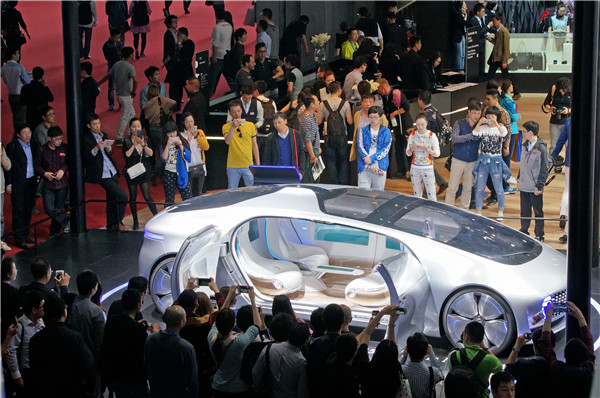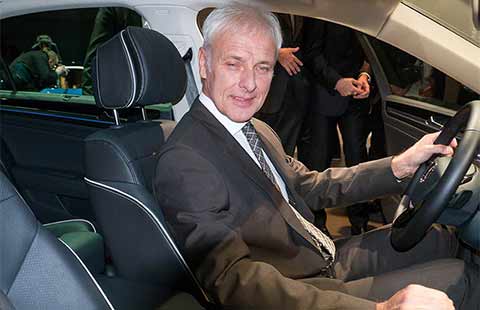Let's play Chinese checkers in driverless cars
By Meng Jing (China Daily) Updated: 2016-03-01 09:45
 |
|
The Mercedes-Benz F 015 autonomous driving concept car attracts attention at the Shanghai autoshow in April 2015. [Photo/China Daily] |
The company completed its first test drive in December. But to ensure all the technologies deployed are fully ready, the car needs to run on roads for thousands of hours, to figure out all possible scenarios, and to eliminate the risk of accidents, according to Baidu.
It has announced an ambitious plan to make its autonomous driving car commercially available within three years.
However, regulations, rather the lack of them, represent additional hurdles.
Zhang Changqing, a professor at the Law School at Beijing Jiaotong University, said autonomous driving will not be accident-proof, especially when there are other vehicles driven by humans on the same road.
"Once an accident happens, who should be held responsible for it? Automakers or software providers? Or the vehicle owner? How would insurance companies offer compensation for such accidents?" he said.
A fundamental shift in the auto industry first requires a thorough legal and regulatory framework to be put in place, he said.
Given the complexity involved, mobility service providers may be the first to be allowed to adopt the new technology at a commercial level, said industry insiders. For, it would be easier to regulate them, as no more than tens of thousands of cars would be involved, not millions of individual car owners.
- Continued influx of capital reflects investors' confidence in major Chinese cities
- A craftsman in the big city
- Future Centers to drive VW into digital era
- China promotes share, dividend incentives among SOEs
- China signals stronger pro-growth policy stance
- China should not be blamed for world economic slowdown
- Russian tourists rushing back to China
- LA sees influx of Chinese visitors
















